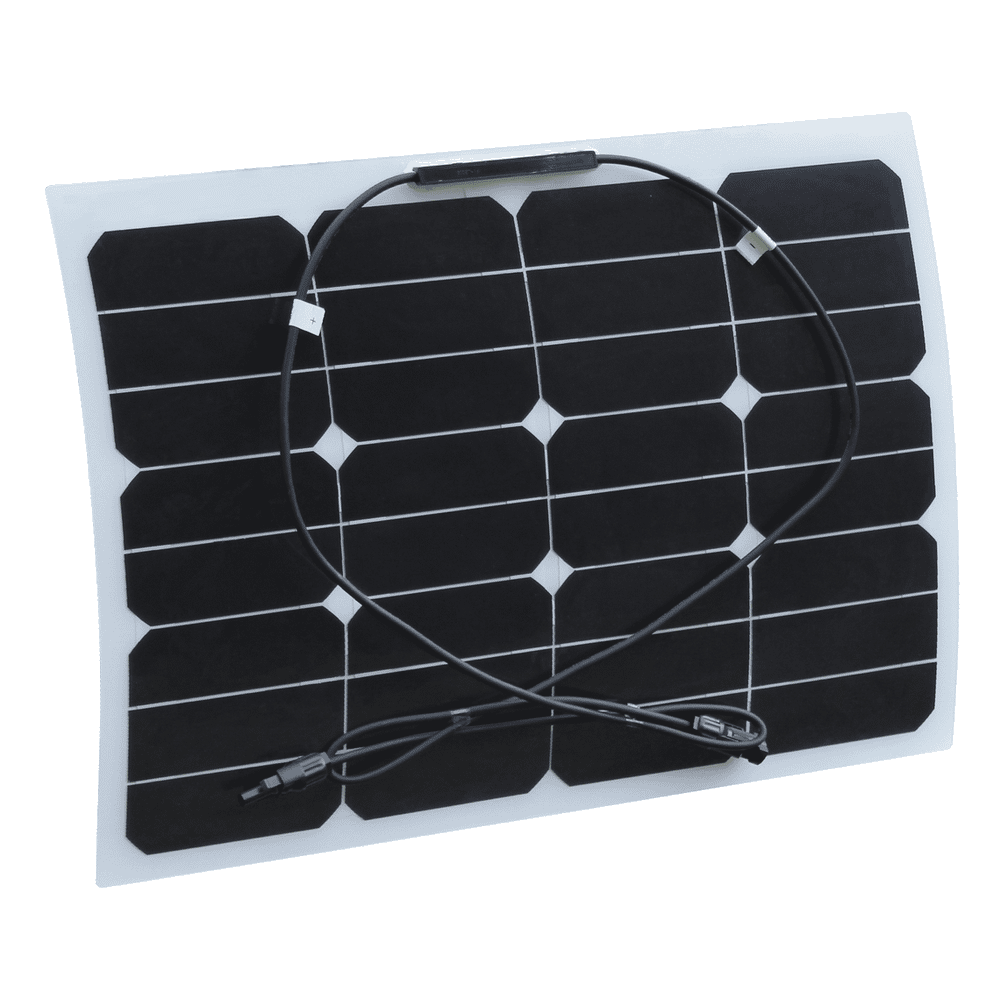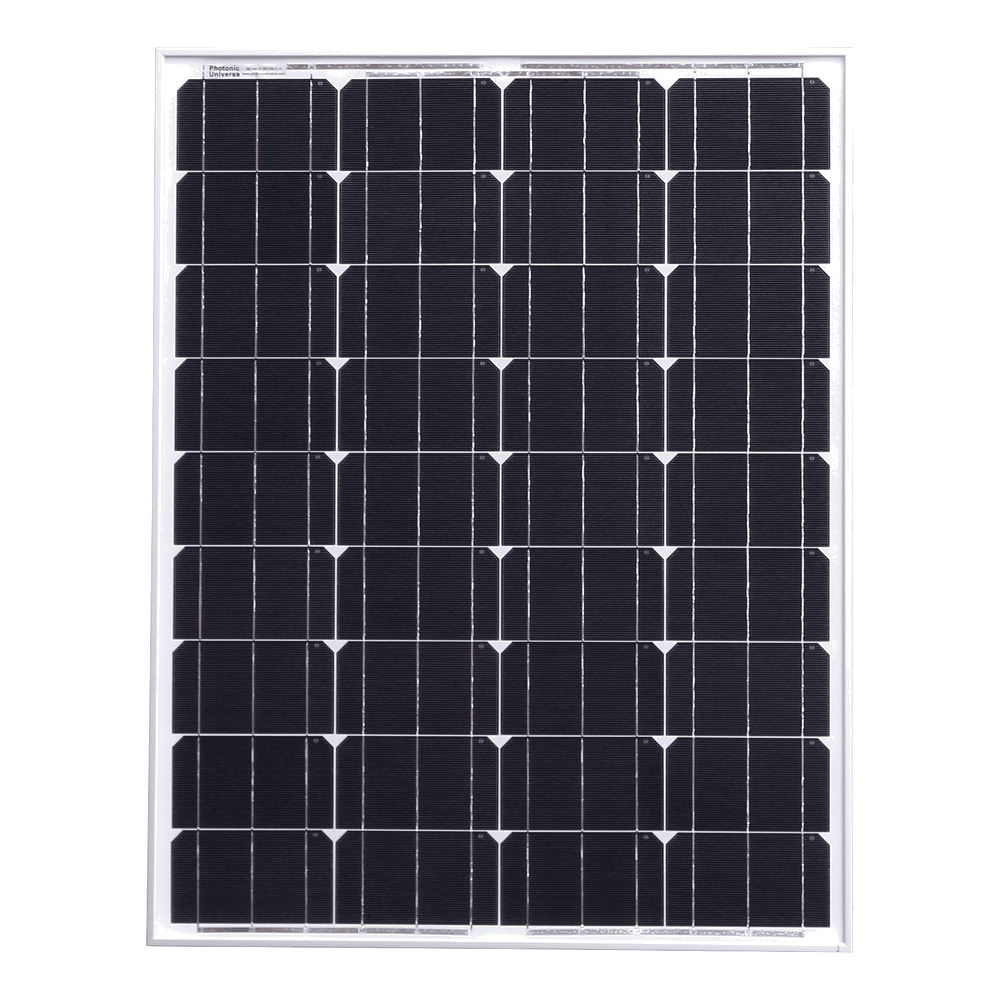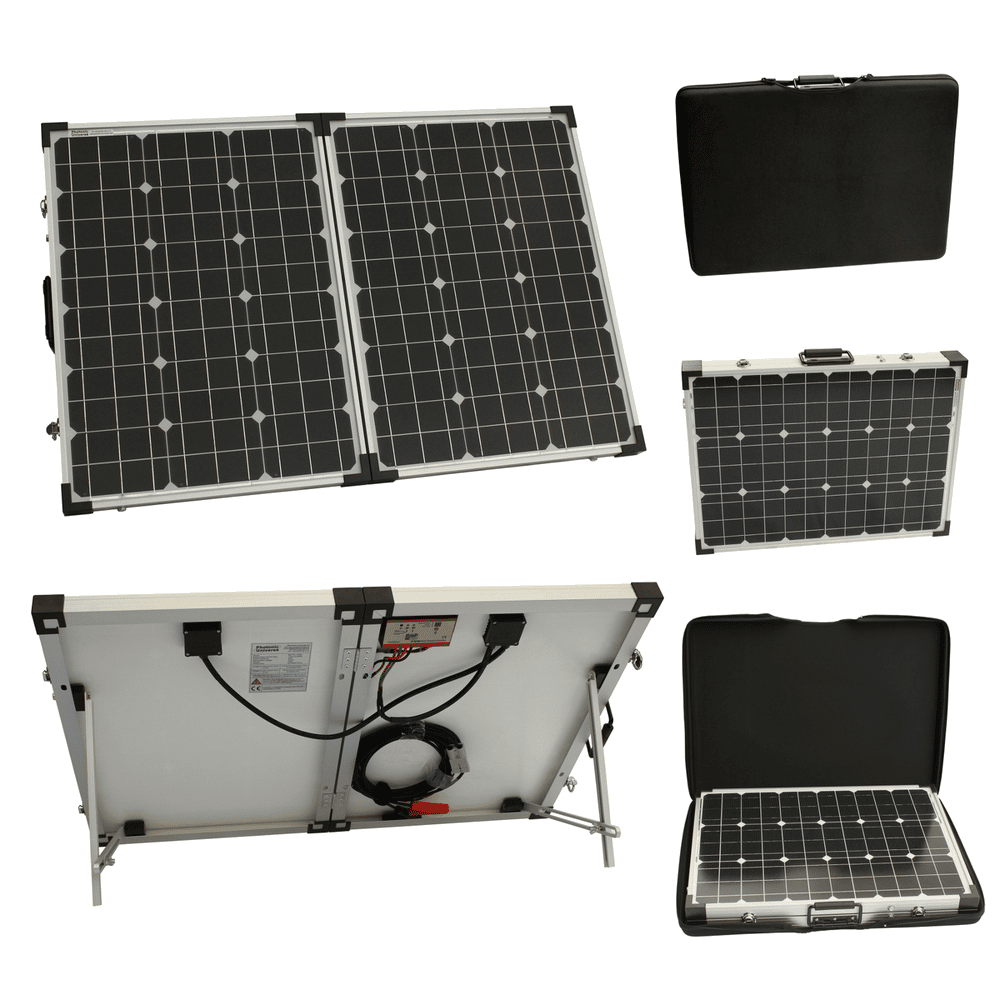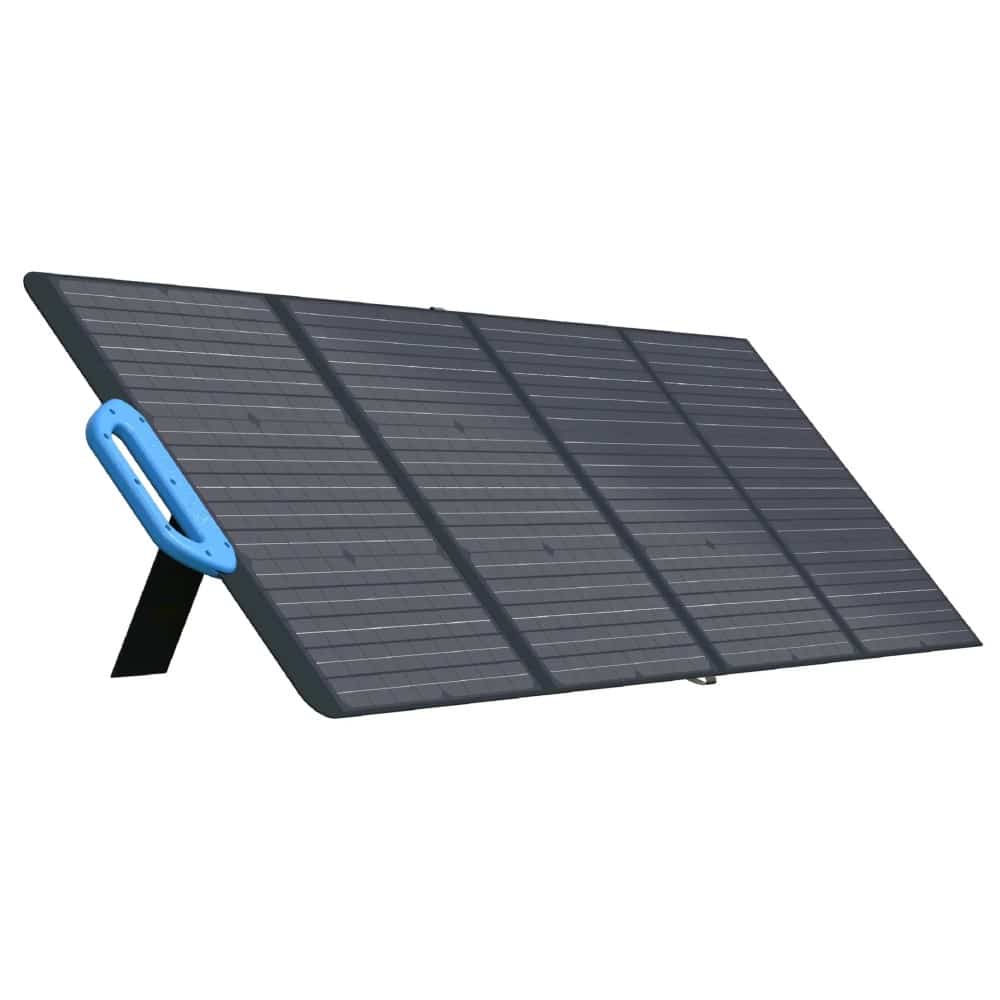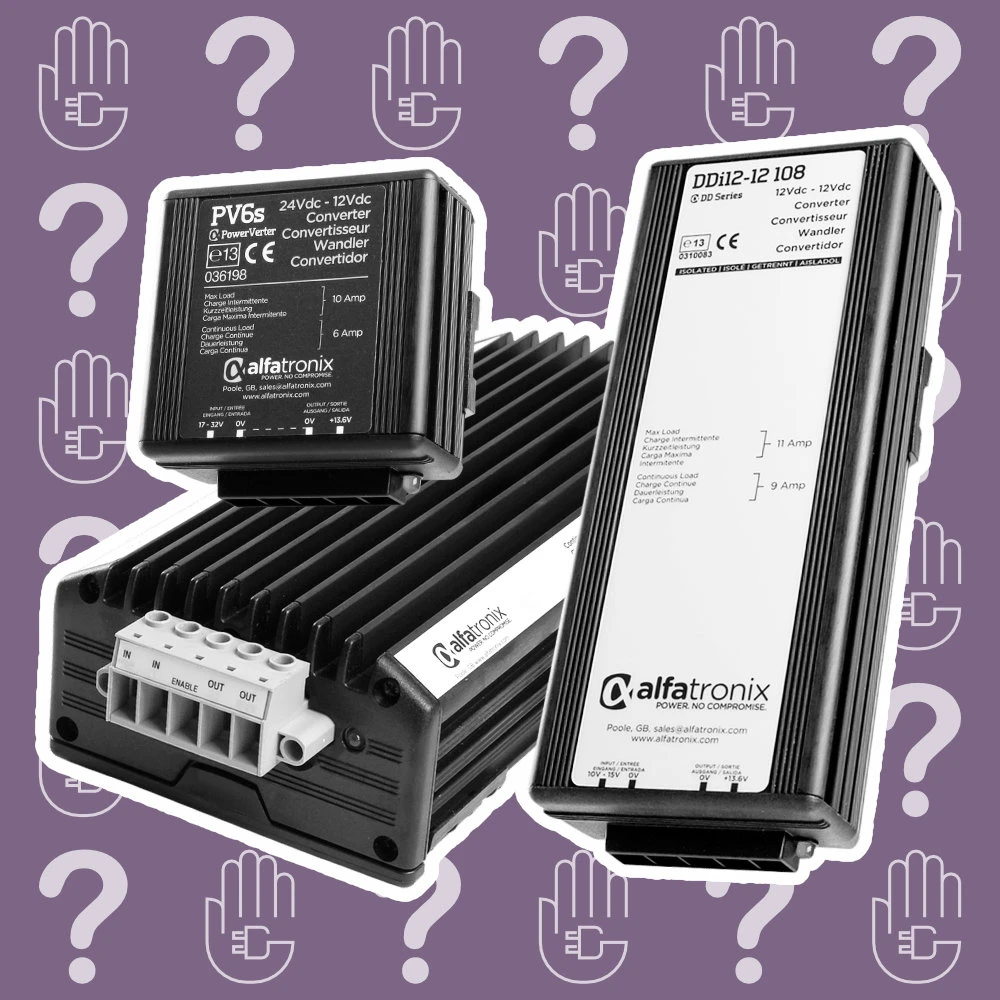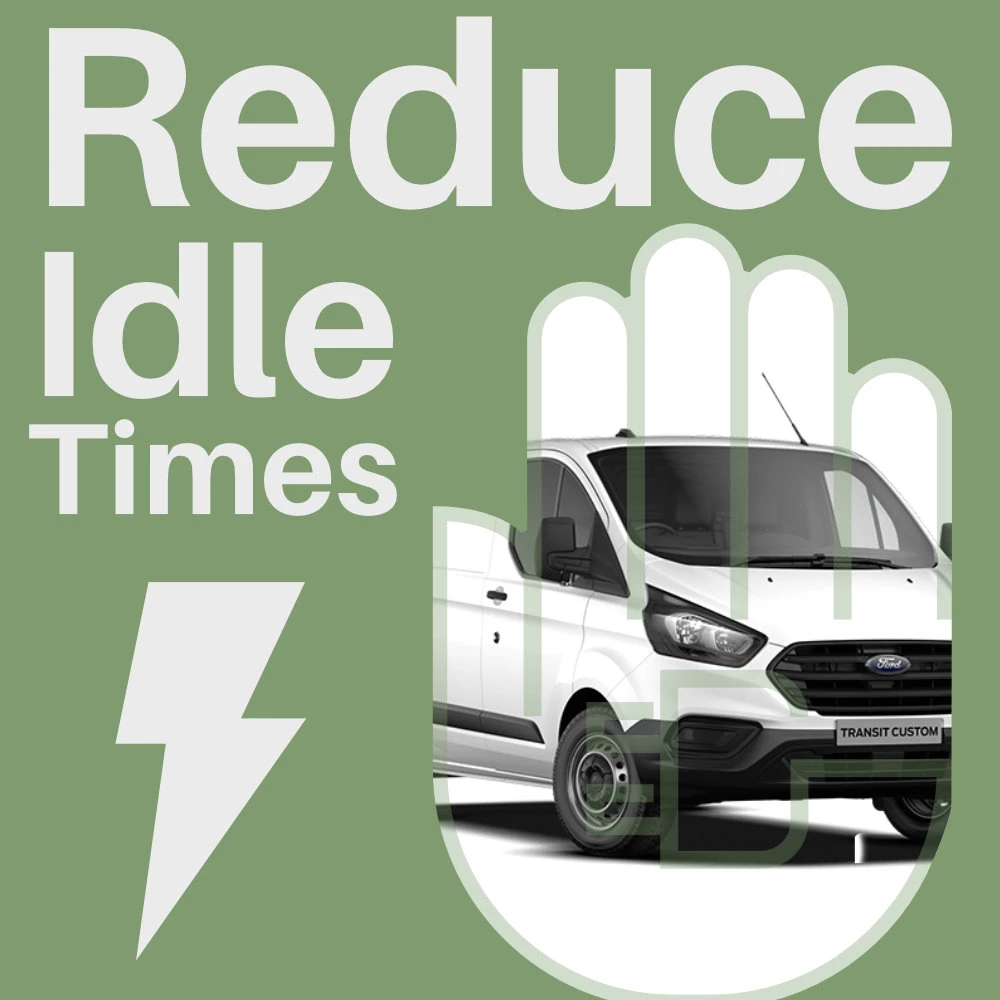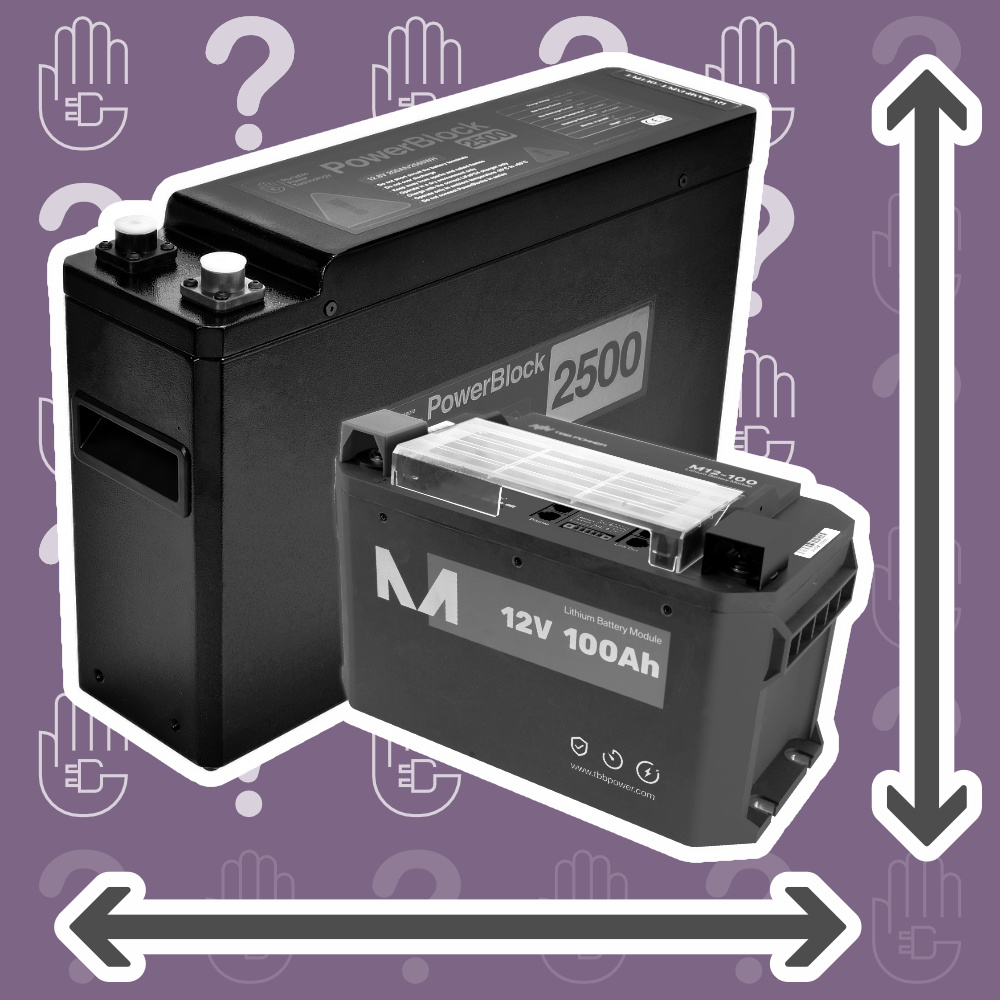What are Solar Panels?
Every single Solar Panel is a cost-effective and eviromentally friendly way to generate electricity in the UK. They convert energy from the sun into electricity that can be used to power homes and businesses. Solar panels are becoming increasingly popular in the UK due to the government's commitment to renewable energy and the falling cost of solar technology.
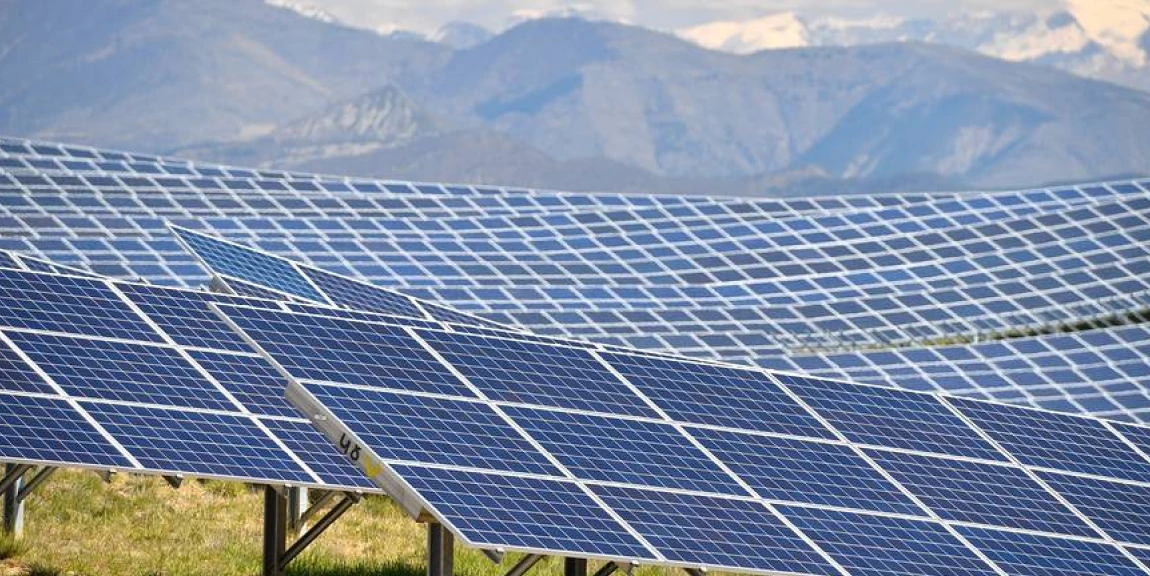
How do Solar Panels work?
The process of solar energy generation comes from the photovoltaic (PV) cells that make up the solar panel. These cells convert sunlight into direct current (DC) electricity, which is then sent to a solar controller.
From here the solar controller will be connected to a leisure battery and will regulate the DC current generated from the panel in order to safely recharge your battery.
Some solar setups sell this energy back into the grid, but in recent years this has become incredibly unnatractive. Its much more smart and effective to store this energy and use it yourself. Going forward we be looking at grid-independant solar systems for personal or commercial use.
Whats the best Solar Panel?
Solar is very subjective and the best solar panel for you will be the type that provides the most benefits for your application. Solar panels can be installed on a variety of surfaces including rooftops, walls, vehicles or even on the ground, so it really does depend on what you're working with.
If you have a power pack and value portability, then a folding solar panel would be perfect for you. If you're adding solar to a motorhome then a rigid solar panel will provide high efficiency and be the most cost effective.
What do I need to Install a Solar Panel?
Installing solar panels can help save money on electricity costs, increase equipment run times and reduce your carbon footprint. Additionally, these can also be installed on top of vehicles to keep leisure batteries topped up throughout the day, as well as promote clean and renewable energy.
Before you install your solar panel you'll want to make sure you have the basic equipment necessary;
-
Solar Panel(s) - Generally rated as a "12V" or "24V" panel
-
A Solar Controller large enough to handle your solar array
-
A Battery bank to store the captured energy - Preferably lithium based
-
Appropraite fusing and fuse holders - Rated to match your solar controller
-
MC4 Extention Leads (Optional)
If your solar controller does not come with output cables then you'll need to aquire some, or be prepared to make a pair of cables yourself. You may also need MC4 adapters and crimping tools to sucessfully attach these. If you're mounting your panels then you'll also need to make sure you have the correct bracket and tools required for the install.
Should you need any assistance with this please get in contact with us directly.
How much solar do I need?
Your solar requirements are entirely based on how much you want and rely on solar recharging. In the UK this becomes increasingly difficult to achieve consistent results all year round, as there is just less daylight hours in winter than there is in summer.
As such you can roughly estimate that there will be at least 1 hour of sunshine per day in winter and an average of 6 hours in the summer. From this you can gauge how large your solar array will need to be in order to provide the recharging you desire.
| Panel Power Rating | Season | Wh Calculation |
|---|---|---|
| 50 W | Winter | 50 W x 1 hr = 50Wh |
| 100 W | - | 100 W x 1 hr = 100Wh |
| 200 W | - | 200 W x 1 hr = 200Wh |
| 300 W | - | 300 W x 1 hr = 300Wh |
| 50 W | Summer | 50 W x 6 hr = 300Wh |
| 100 W | - | 100 W x 6 hr = 600Wh |
| 200 W | - | 200 W x 6 hr = 1200Wh |
| 300 W | - | 300 W x 6 hr = 1800Wh |
What Solar Controller do I need?
A solar controller is an essential component of a photovoltaic (PV) system, as it regulates the power flow between the solar panels, the battery, and the load. There are different types of solar controllers, each designed to suit specific system configurations and requirements.
-
Pulse Width Modulation (PWM) Controller
The PWM controller is the most basic type of solar controller and is suitable for small PV systems. It regulates the power flow by pulsing the voltage to the battery, maintaining the battery voltage at a set level. These work at a far less efficiency but offer a cheaper alternative.
-
Maximum Power Point Tracking (MPPT) Controller
The MPPT controller is a more advanced type of solar controller, designed to optimize the power output of the PV system. It tracks the maximum power point of the solar panel and adjusts the voltage and current to maximize the power transfer to the battery. This type of controller is ideal for larger PV systems, where the maximum power output is a priority.
-
Light-Dependent Resistor (LDR) Controller
The LDR controller is designed for use in systems where the load varies depending on the ambient light conditions. It uses an LDR to measure the light levels and adjust the power flow accordingly. This type of controller is ideal for outdoor lighting applications, where the load needs to be adjusted according to the available light. These are often already integrated into solar devices designed for household gardens.
To summarise, the type of solar controller you need for your PV setup will depend on the size and configuration of your system, as well as your specific requirements. However you can't go wrong with a MPPT solar controoler, as these will provide the highest efficiency. If you have a small system and are looking for very basic battery maintenance, a PWM controller may be sufficient. For larger systems, or where maximum power transfer is a priority, an MPPT controller is always recommended.
Solar Controller Size Guide
In order to accurately size a solar controller for your solar array, you need to consider several factors like Solar panel voltage, solar panel current and your battery bank voltage.
For further help on how to appropriately size your solar controller, check out this guide.
Hopefully this provides an insight into what kind of solar solution woudl work best for you. Installing solar panels can provide many benefits such as saving money on electricity bills, stretching battery run times and reducing your overall carbon footprint through renewable means. With the government's commitment to renewable energy and the falling cost of solar technology, solar panels are becoming increasingly popular in the UK.
If you need some further advice, or just want to talk to an expert about your power application, feel free to get in contact below.
With over 15 years of experience working with off-grid systems, we're sure to help, nomatter how big or how small the application may be.
